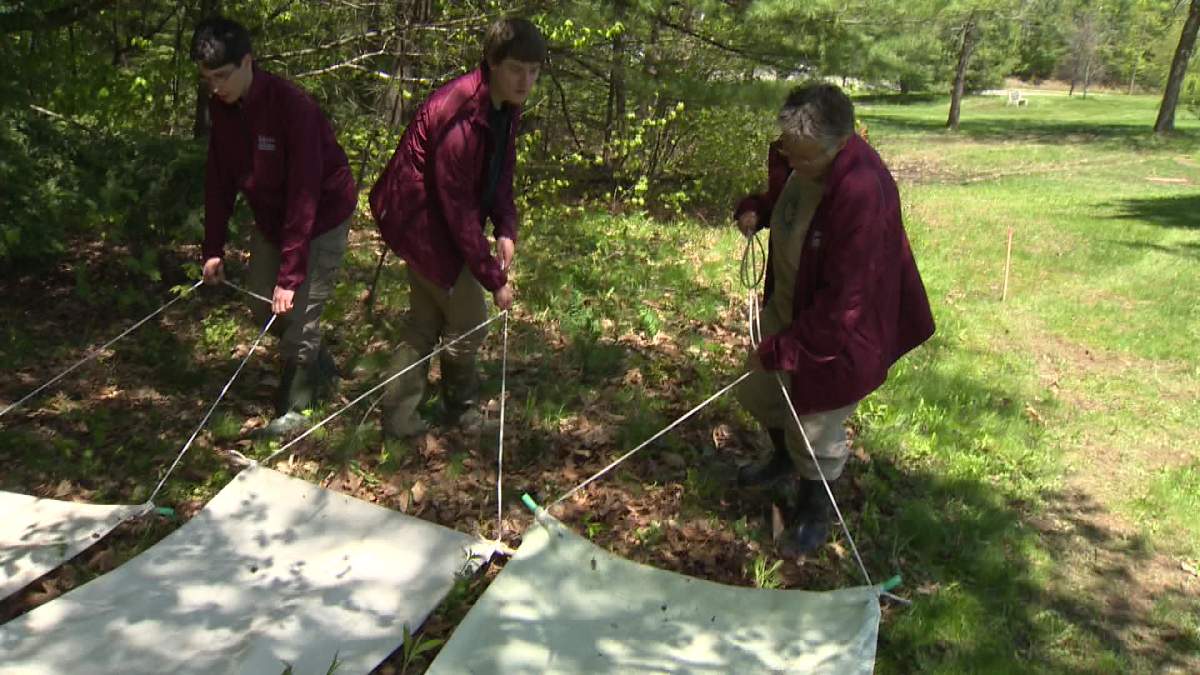FREDERICTON – Researchers from Mount Allison University have begun dragging for ticks in different parks and forests throughout New Brunswick, looking to test the ticks for Lyme disease.

Dr. Vett Lloyd, a professor of biology at the university, was diagnosed with the disease three years ago.
“I was paralyzed in half my body, so it took six months before I was able to walk again. But it can be treated,” she said.
Lloyd says Lyme disease is growing in the province. It’s a bacterial infection caused by Borrelia bacteria, usually spread through a tick bite. While early infection can be treated with antibiotics, an array of symptoms can appear if left untreated.
Those symptoms include extreme fatigue, muscle aches and numbness, according to John Waugh. He’s tested positive for the disease.
But Waugh hasn’t been treated yet. He’s been told he has to go across the border to get the treatment, because the disease isn’t treated in New Brunswick.

Get daily National news
“It makes you feel like you’re lined up outside a club, and the bouncer lets everyone else in, but if your ID says ‘I have Lyme disease’ he says ‘Get lost. There’s a real expensive club on the other side of town, go over there, you’re not welcome here.'”
That ‘real expensive club’ is the United States, where Waugh is saving up to head to New York for treatment.
“Other people’s stories, they’re just as heartbreaking and it just burns me up that people don’t know what’s going on. It’s got to change.”
Jamie Patterson, a third-year student at Mount Allison University is on ‘Tick Patrol’ this summer.
“We get wet dogs to roll around in blankets, because ticks like dogs,” Patterson explains. “So the blankets are going to smell like dogs and we slowly drag them across the ground, and the ticks latch onto the blanket.
“If we get a tick in a jar, it’s very exciting. We bring it back to the lab and we take their picture, identify the species and run some diagnostic tests to see if they do in fact have Lyme disease.”
Last June, the province passed a motion, recognizing “the rapid spread of Lyme disease as a pressing public health issue in New Brunswick.”
“The Legislative Assembly commits itself to work collaboratively to find solutions to this public health problem,” the motion reads.
Researchers and those suffering from the disease say they want the province to keep that promise.
“We’re making progress,” said Lloyd.









Comments